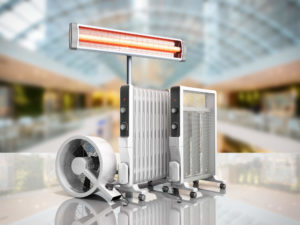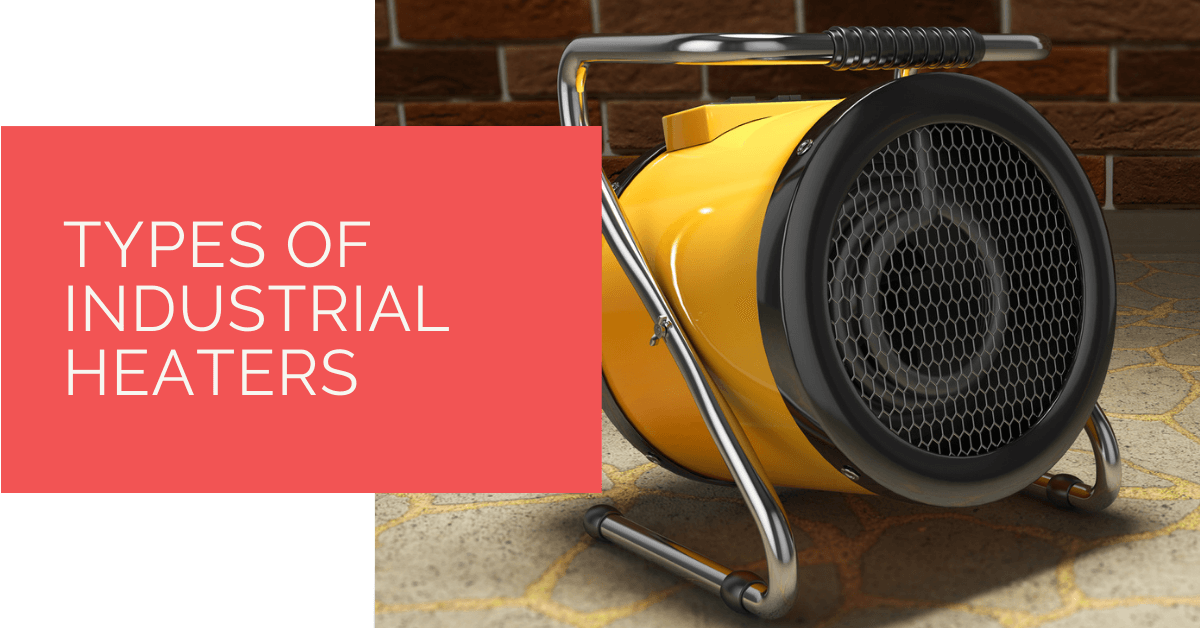You may not be familiar with industrial heaters, but they’re essential to any industry. When running a company, the last thing you want to consider is getting your hands dirty while maintaining industrial heaters. However, it’s essential to maintain them properly as they can represent a potentially significant fire hazard if not used and maintained appropriately.
They’re also some of the most efficient heating solutions available. There are several different types of commercial heaters to choose from. It would be best to understand the similarities and differences between these options before making your purchase.
Contents
Key Takeaways
- Industrial heaters are essential in various industries and require proper maintenance to prevent fire hazards.
- There are two main types of industrial heaters: non-condensing and condensing, each with advantages.
- Industrial heaters include air-to-air heaters, steam, gas, and electric heaters, each suitable for different heating needs and environments.
What are the Different Types of Industrial Heaters?
There are two kinds of industrial heating systems on the market:
Non-Condensing Industrial Heaters
These do not use any water and therefore do not produce any steam or condensation. These types of heaters will help you save money on maintenance costs as they are easy to clean. They are also known for being safer, reliable, and efficient.
Condensing Industrial Heaters
This type of heater uses a lot of water and produces steam. These heaters will also have condensate pumps which are used to remove the condensed water from the system. They are efficient, powerful, and easy to maintain.

Types of Heaters Available in the Market
Electric heaters, steam heaters, gas heaters, and air-to-air heat exchangers are the main types of industrial heaters. Depending on your specific needs, you can choose from different types of industrial heating systems that include:
Air-to-air Industrial Heaters
Air-to-air industrial heating systems use an electric fan to draw cooler air from outside and circulate it through a network of pipes to deliver heated air to multiple areas within a facility. This industrial heating system is efficient and works well in spaces with a high ceiling.
Steam Heaters
Steam heaters use water to generate steam, which is then circulated through a network of pipes to deliver heated air to multiple areas within a facility. The main advantage of this type of industrial heating system is that it can provide hot water for numerous purposes as well as space heating. Steam heaters are more efficient than air-to-air heaters.
Gas Heaters
Gas heaters are typically used in industrial plants and businesses with high heat demands. This type of heating system is usually the most expensive, but it also produces the most heat. These types of systems are often referred to as boiler-based systems. They are generally used to heat a large area, such as a warehouse or an office building.
Electric Heaters
Electric heaters are the type of heaters that are often used in industrial applications. They can be powered by a direct current or an alternating current, and the temperature is controlled by the size of the heating element, which makes them relatively inexpensive to use. The electricity is converted into heat through resistance, and it does not require fuel or combustion.
The most significant advantage of electric heaters is that they are easy to install, and there is no risk of explosion, unlike gas heaters. On the other hand, they may not be as efficient as gas heaters and are not as safe to use in enclosed spaces.
Things To Consider Before Buying an Industrial Heater for Your Industry
There are a number of factors to consider when you’re looking for the best industrial heater. You need to decide on your heating requirements, the type of space you’re working in, and what size of the area you want to heat. Once you know these things, it’s time to start shopping around for a suitable product.
Heating Requirements
The first thing you need to think about is how much heat your workplace needs in order to stay comfortable. It’s also important to consider how much space you need to heat. Industrial heaters are measured in BTUs (British Thermal Units), which indicate the amount of heat they produce. In general, a higher BTU rating means that the heater will be able to warm up a larger area. However, other factors come into play as well.
Type of Space
It’s important to think about the type of space you want to heat when looking for an industrial heater. For example, if you’re going to heat a warehouse, you’ll need a different type of industrial heater than if you want to heat an office building. You should also consider the type of building that your workspace is in. For example, you’ll need to think about whether or not your workplace is appropriately insulated and how much space there is between the walls and ceilings.
The Environment
If your workplace has a damp environment or lots of dust, then it will be necessary to have a heater that produces fewer pollutants and is more environmentally friendly.
Heat Pump Source: Reliable Heating and Cooling Solutions
At Heat Pump Source, we take pride in our unwavering commitment to serving the UK with top-tier HVAC solutions. From the efficiency of heat pumps and the cool relief of air conditioning to the warmth of boilers, radiators, and underfloor heating, our dedicated team is always at the forefront of innovation. We understand the unique needs of every household and business, and we strive to provide dependable health and cooling products and services that are tailored just for you. Ensuring your comfort and satisfaction is our utmost priority. Whether you have questions, need guidance, or require support, we’re always here to assist. Please don’t hesitate to contact us; we’re eager to be of service.
Final Words
Industrial Heaters come in various sizes, types, and power outputs. The different kinds of industrial heaters include oil-fired heaters, biomass heating systems, natural gas-fired heaters, air-cooled heaters and more.
They are used in a variety of industries and applications. In this article, we’ve provided you with an overview of the most common types of industrial heaters. We hope these tips have been helpful!
About the Author
At Heat Pump Source, our articles are the product of a collaborative effort among a team of highly skilled HVAC experts. Our dedicated professionals, hailing from diverse backgrounds in heating, ventilation, air conditioning, and refrigeration, contribute their extensive knowledge and experience to every piece of content. This multidisciplinary approach ensures comprehensive coverage. Our commitment is to deliver authoritative, reliable, and tailored advice to meet the unique needs of every household and business across the UK.

